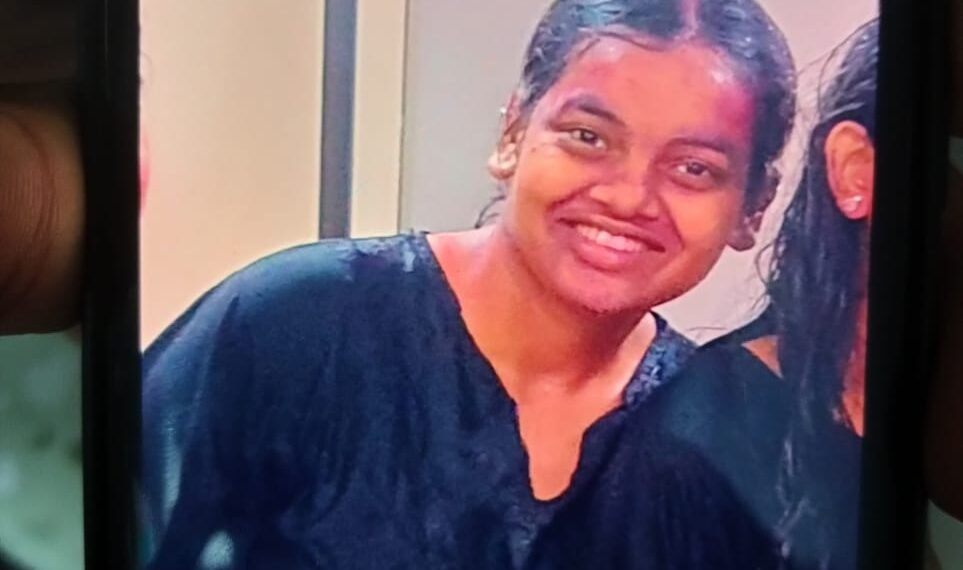BY PC Bureau
May 3, 2025 – The suspected suicide of 18-year-old Nepali student Prisa Sah at the Kalinga Institute of Industrial Technology (KIIT) in Bhubaneswar on May 1, 2025, has sparked widespread protests and renewed demands for justice, transparency, and accountability. This marks the second such tragedy involving a Nepali student at KIIT within three months, intensifying scrutiny on the institution’s handling of international students’ safety and well-being.
Protests Erupt on Campus and Beyond
Following the discovery of Prisa Sah’s body in her hostel room (room 111, ladies’ hostel) on Thursday evening, hundreds of students, predominantly Nepali nationals, gathered on the KIIT campus to protest. Demonstrators, chanting slogans such as “Justice for Prisa” and “Ensure Student Safety,” blocked roads near the university, accusing KIIT authorities of negligence and inadequate mental health support. Videos circulating on social media showed students holding candlelight vigils and displaying placards demanding a thorough investigation into Sah’s death.
Off-campus, protests escalated in Nepal, with students and activists staging demonstrations outside the Indian Embassy in Kathmandu. A post on X by the student wing of the Nepali Congress party condemned KIIT’s response and called for immediate action to protect Nepali students in India. The protests echoed sentiments from February 2025, when the death of Prakriti Lamsal led to similar unrest, with allegations of institutional cover-ups and mistreatment of Nepali students.
ALSO READ: As Divides Deepen, Manipur Seeks Answers to May 3 Tragedy Two Years On
Demands for Investigation and Accountability
The Nepali student community and diplomatic officials have outlined clear demands in response to Sah’s death:
Transparent Investigation: Protesters and Nepal’s Foreign Minister Arzu Rana Deuba have demanded a comprehensive and impartial probe into the circumstances of Sah’s death. No suicide note has been recovered, and students are urging authorities to examine potential factors such as harassment, academic pressure, or institutional negligence.
Another Nepali student dies by suicide at #KIITUniversity!
How long will @achyuta_samanta Samanta and the @KIITUniversity administration stay silent? The university is turning into a death trap for students.#ShameOnKIITUniversity #JusticeForStudents #StudentsSafety pic.twitter.com/GAEkGTQsYm— Pratyush Ranjan Dash | प्रत्युष रंजन दाश (@pratyush4bharat) May 1, 2025
Justice for Prisa Sah: Demonstrators are calling for accountability, drawing parallels to the Lamsal case, where a fellow student was arrested for abetment of suicide. Students allege that KIIT has failed to address systemic issues, including harassment complaints, as evidenced by Lamsal’s prior reports of abuse being ignored.
Safety Measures for International Students: Nepali students have demanded enhanced safety protocols, including accessible mental health resources, anti-harassment policies, and a dedicated grievance redressal mechanism for international students.
Action Against University Officials: Protesters have accused KIIT of mishandling the situation, citing the February incident where Nepali students were forcibly evicted and assaulted by security personnel. There are renewed calls for disciplinary action against staff involved in any misconduct.
Nepal’s Ambassador to India, Shankar P Sharma, reiterated these demands, stating on X that the embassy is coordinating with the Odisha government, police, and KIIT for a “thorough investigation.” Nepal’s Foreign Minister Deuba confirmed ongoing diplomatic efforts, noting discussions with Odisha’s Higher Education Minister Suryabanshi Suraj to ensure a safe environment for Nepali students.
ALSO READ: Manipur: Security Forces Among 25 Injured as Naga Villages Clash Over Land Dispute
Odisha Government and KIIT’s Response
The Odisha government has responded swiftly, labeling the incident “deeply unfortunate” and assuring Nepal of its commitment to justice. Chief Minister Mohan Charan Majhi spoke with Nepali diplomats, promising that the high-level committee formed after Lamsal’s death would expand its scope to investigate Sah’s case. The committee, headed by Additional Chief Secretary Satyabrata Sahu, is tasked with examining the circumstances of the suicide, KIIT’s response, and the treatment of protesting students.
Police Commissioner S Dev Datta Singh confirmed that an unnatural death (UD) case has been registered, with a scientific team analyzing Sah’s room for evidence. The post-mortem examination, scheduled for May 2, 2025, after the arrival of Sah’s parents, is expected to provide further clarity. Singh appealed for calm, stating, “We are committed to a transparent investigation and urge students to refrain from taking the law into their own hands.”
KIIT, which faced significant backlash for its handling of the Lamsal case, issued a statement on May 2, 2025, expressing “deep sorrow” over Sah’s death. The university pledged full cooperation with the police and diplomatic authorities, stating, “We are committed to ensuring a safe and inclusive environment for all students.” However, students criticized the statement as vague, noting the absence of specific measures to address their concerns.
Diplomatic Tensions and Broader Implications
The incident has reignited diplomatic tensions between India and Nepal, reminiscent of the fallout after Lamsal’s death. Nepal’s Prime Minister K P Sharma Oli, who intervened in February, issued a statement urging India to prioritize the safety of Nepali students. The Nepali Parliament is set to discuss the issue, with opposition members labeling KIIT’s response as “discriminatory” and calling for stricter oversight of Indian institutions hosting Nepali students.
The Indian Embassy in Nepal assured that it is in close contact with Odisha authorities, stating, “Legal and administrative measures will be taken based on the inquiry’s findings, and those responsible will be held accountable.”
Ongoing Concerns and Next Steps
The back-to-back tragedies at KIIT have amplified concerns about the mental health and safety of international students, particularly the approximately 1,000 Nepali students enrolled at the institution. The fact that both incidents occurred on the same hostel floor has fueled speculation and distrust among students, who are demanding answers about systemic failures.
As protests continue, the Odisha government faces pressure to restore confidence among Nepali students, many of whom remain hesitant to return to campus. The high-level committee’s findings, expected within weeks, will be critical in addressing allegations of negligence and ensuring justice for Prisa Sah. Meanwhile, the National Human Rights Commission (NHRC) is likely to revisit its inquiry into KIIT’s practices, given its ongoing investigation into the Lamsal case.
This tragic incident underscores the urgent need for robust institutional reforms to protect vulnerable students and prevent further loss of life. As Nepal and India navigate this sensitive issue, the focus remains on delivering justice for Prisa Sah and addressing the systemic issues that have sparked outrage across borders.














